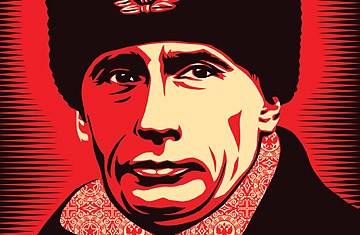Putinitis infects the Congo, kinda
 Today (December 23), for the first time since gaining independence in 1960, the Democratic Republic of Congo was supposed to have had an election. For the first time ever, the DRC was to have the chance to peacefully replace its head of government.
Today (December 23), for the first time since gaining independence in 1960, the Democratic Republic of Congo was supposed to have had an election. For the first time ever, the DRC was to have the chance to peacefully replace its head of government.
Just days before the election, it was indefinitely postponed. But even had it gone ahead, there was no great surprise in the offing. Long-time ruler Joseph Kabila’s handpicked successor, Emmanuel Ramazani Shadary, was always expected to win. The Economist put it as follows: “The election will be unfair, perhaps farcical. The main opposition candidate, Moïse Katumbi, a former governor of Katanga province, was barred from entering the country to register his candidacy. Without him, the opposition has fragmented. In parts of the country afflicted by fighting, Ebola or both, many voters will be too scared to turn out. Most Western observers have been banned.”
Now, of course, there isn’t going to be even an “unfair…farcical” election. I would argue that this is, in some ways, rather better than what was being proposed. That was Putinitis with Congolese characteristics.
Putinitis is a spreading disease, the now-preferred faux democratic option among dictators and autocrats around the world.
What Putinitis means is this: Seeking to emulate Russia’s Vladimir Putin, who used his sidekick Dmitry Medvedev to keep the presidential seat warm for a few years until he was constitutionally allowed to return to his country’s highest office.
As The Economist said, ahead of the DRC’s postponed election, Mr Kabila refused to rule out running again for president in 2023. His admission, in an interview with the paper, was a mockery of a system meant to prevent political entrenchment.
In most countries [but not the US] the system relies on the probity and good intentions of politicians. In the US, a two-term president cannot run again for that office even after a break.
But Mr Kabila – like Mr Putin [and Mr Erdogan, afterwards] – was seeking to exploit a legal loophole.
Obviously, there is nothing to suggest a Congolese Spring. But why should there be?
Mr Kabila, son of Laurent, the Rwandan-backed rebel who toppled Mobutu Sese Seko (1965 to 1997), continues to pay lip-service to democratic norms and constitutional necessities. The use of Putinitis would have been yet another dreadful manifestation of an ugly impulse.

